Find Help
More Items From Ergsy search
-
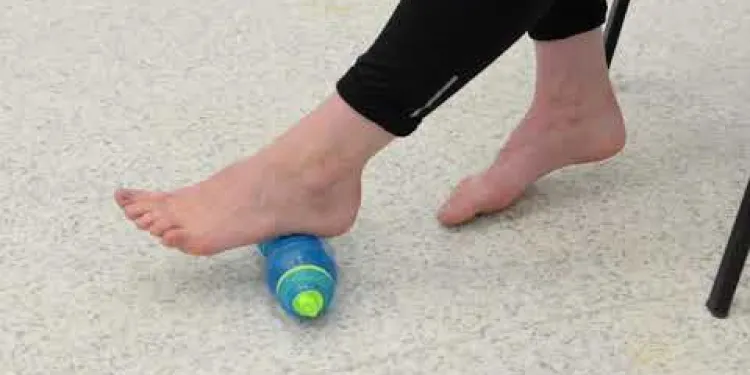
Foot Pain
Relevance: 100%
-
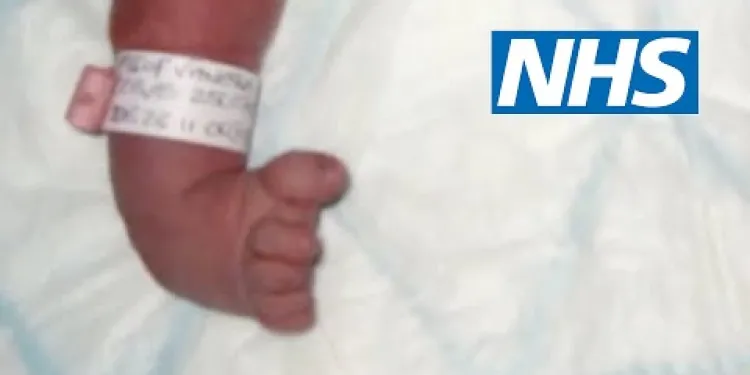
Club foot | NHS
Relevance: 65%
-
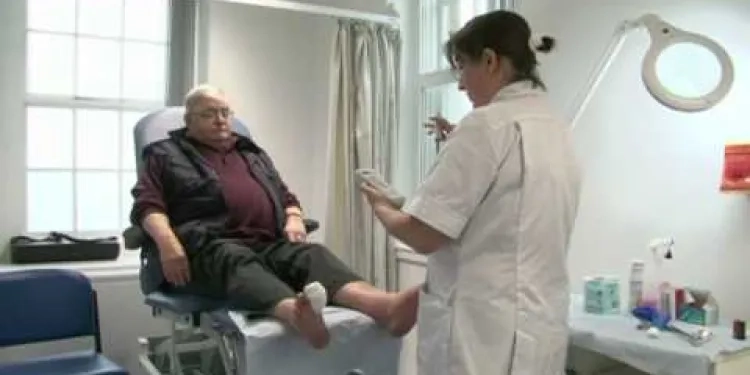
Diabetic Foot Conditions Podiatrist
Relevance: 61%
-

Parent guide to club foot stretches: Step 1
Relevance: 58%
-
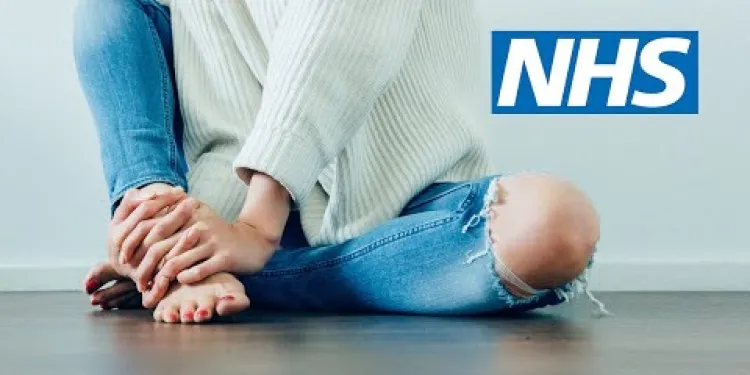
Heel pain | NHS
Relevance: 46%
-
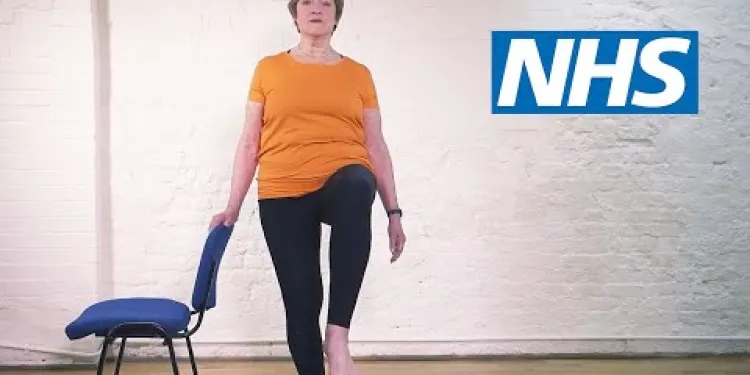
Pilates for back pain: Standing on one leg | NHS
Relevance: 36%
-
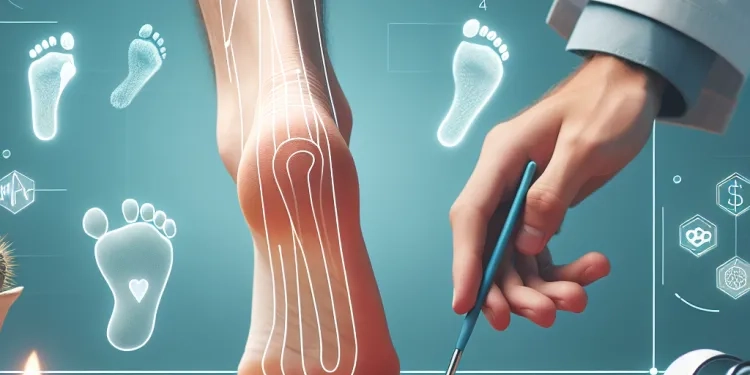
NHS Looking after your feet - Podiatrist https://youtu.be/8J1v6K21ykc
Relevance: 35%
-
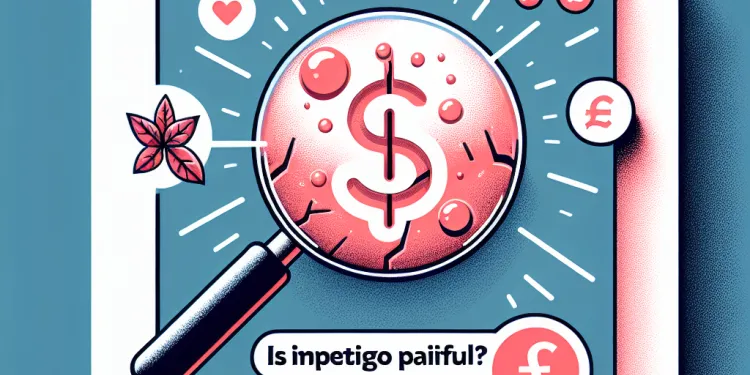
Is impetigo painful?
Relevance: 35%
-

Is a facelift painful?
Relevance: 34%
-

Is a mammogram painful?
Relevance: 34%
-
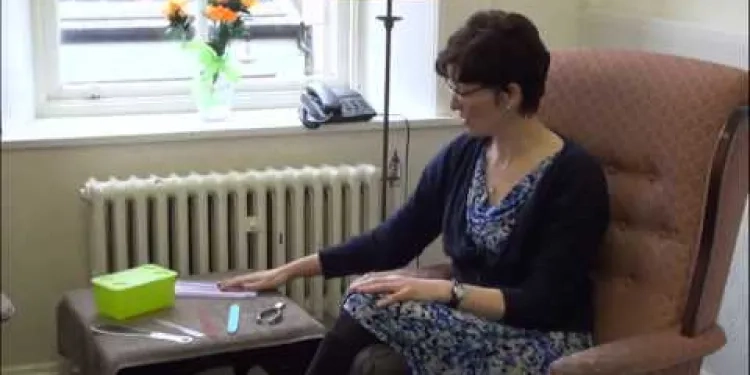
Podiatrist Personal Footcare
Relevance: 33%
-
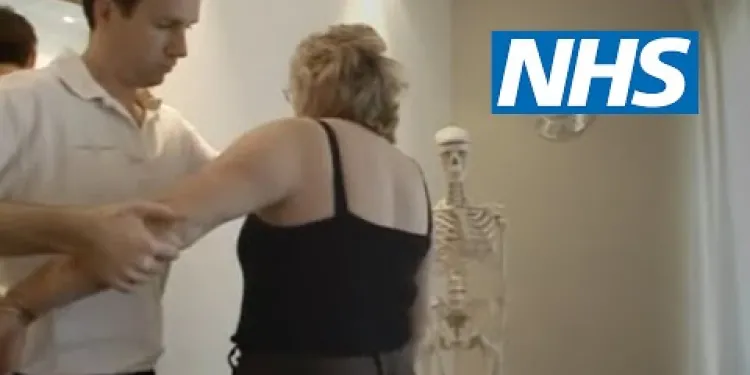
Shoulder pain | NHS
Relevance: 33%
-
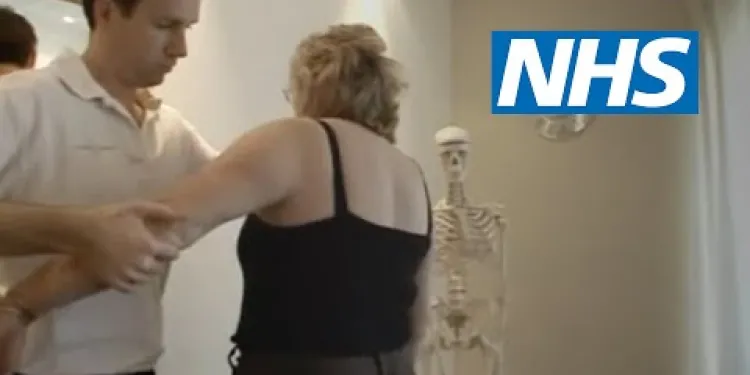
Shoulder pain | NHS
Relevance: 33%
-
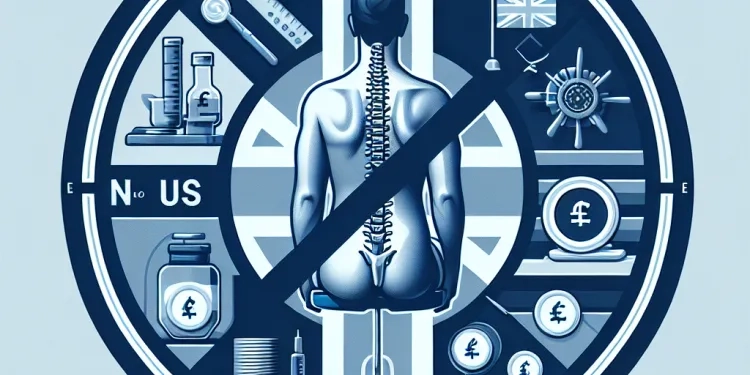
Are chiropractic treatments painful?
Relevance: 32%
-
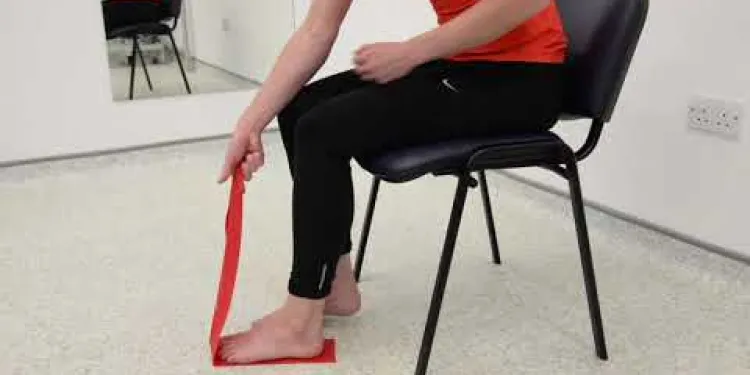
Plantar Fascia Intrinsic Theraband Strengthening Exercise
Relevance: 31%
-

Self care for your feet - Podiatrist
Relevance: 31%
-

Mechanical Lower Back Pain
Relevance: 31%
-

Will I feel pain during the procedure?
Relevance: 31%
-

Advice on neck pain and whiplash
Relevance: 31%
-

Stomach ache and abdominal pain
Relevance: 31%
-
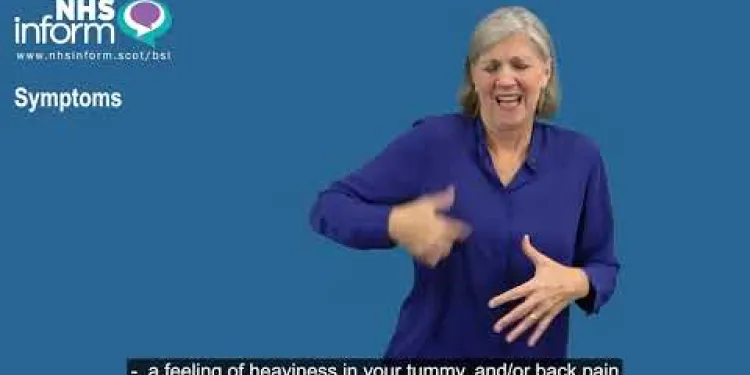
Period pain (dysmenorrhoea) - BSL
Relevance: 31%
-

Shoulder subacromial shoulder pain
Relevance: 31%
-
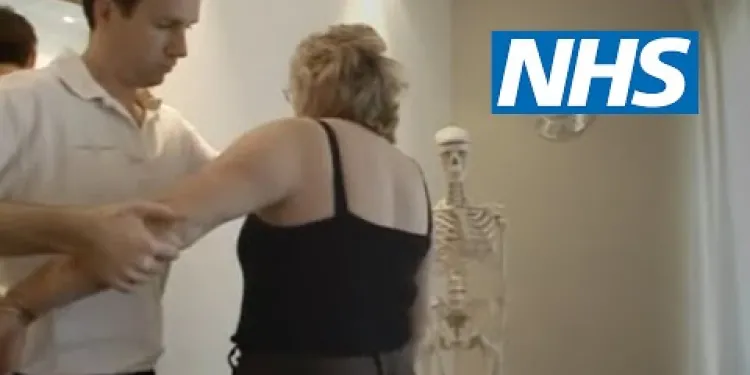
Shoulder pain | NHS
Relevance: 30%
-

Podiatrist Fungal feet - fungal infection of skin and nails and how to prevent fungal infection in feet
Relevance: 30%
-

Is the womb lining test painful?
Relevance: 30%
-
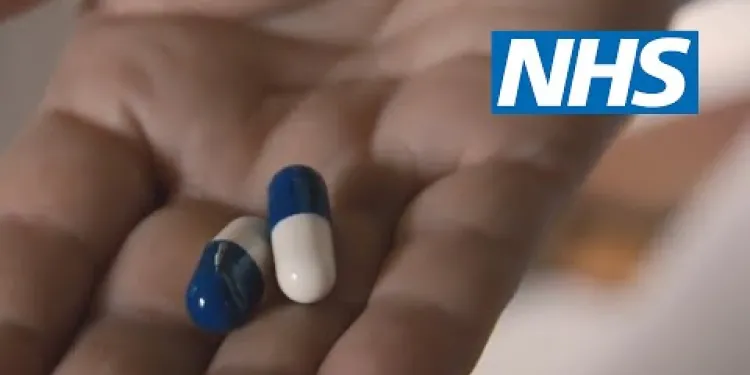
How to treat back pain | NHS
Relevance: 30%
-
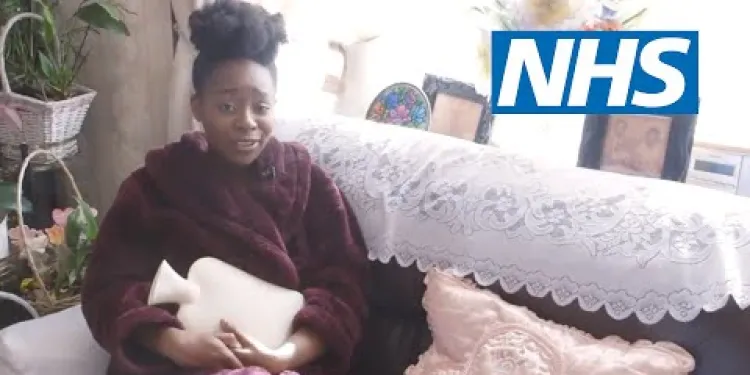
How to deal with period pain | NHS
Relevance: 29%
-
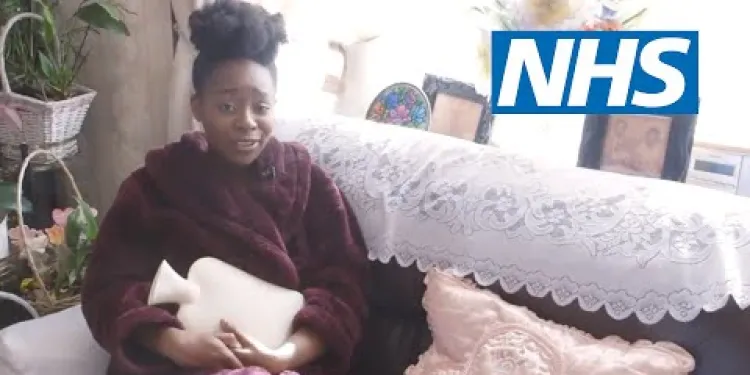
How to deal with period pain | NHS
Relevance: 29%
-
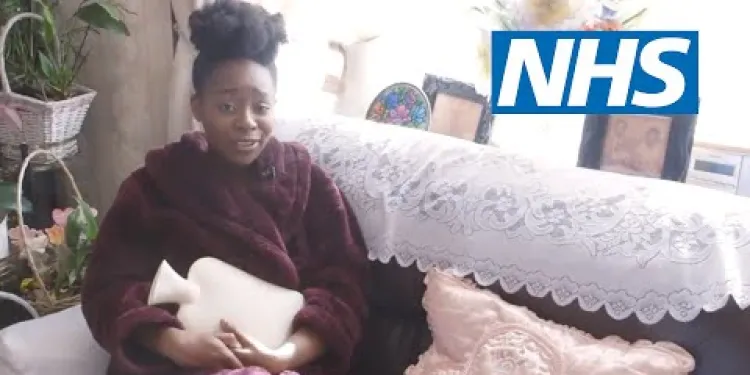
How to deal with period pain | NHS
Relevance: 29%
-
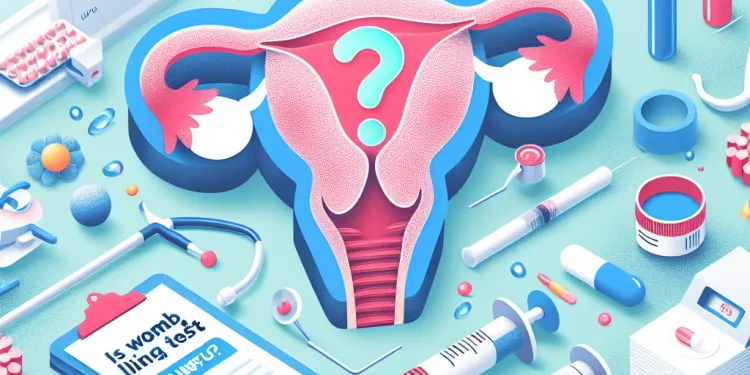
Is a womb lining test painful?
Relevance: 29%
-
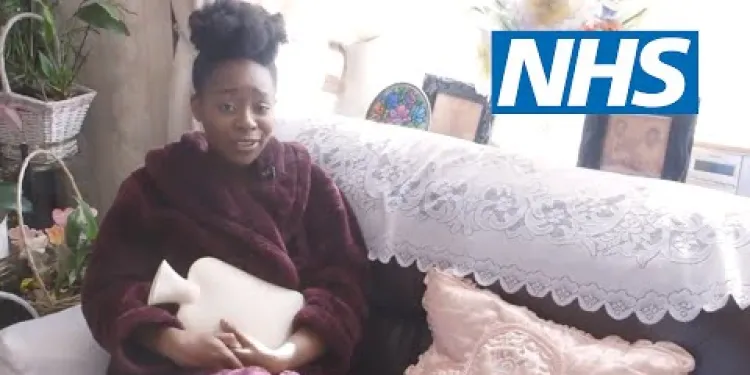
How to deal with period pain | NHS
Relevance: 29%
-

How do chiropractors treat back pain?
Relevance: 29%
-

Greater trochanteric pain syndrome
Relevance: 29%
-

Can I use Ibuprofen for menstrual pain?
Relevance: 29%
-
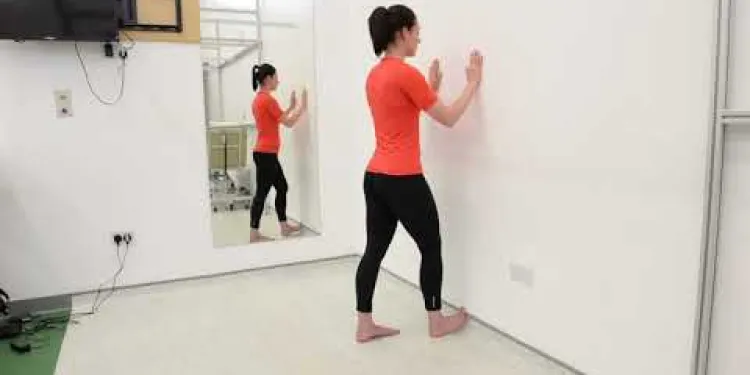
Plantar Fascia Wall Stretch
Relevance: 28%
-

How do NSAIDs work to reduce pain?
Relevance: 28%
-
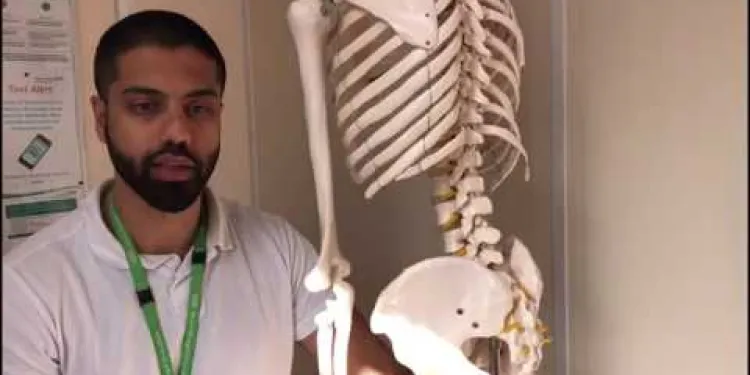
MSK Lower Back Pain information video
Relevance: 28%
-

Useful information for patients with lower back pain
Relevance: 28%
-

Pelvic Girdle Pain Advice Class
Relevance: 28%
-

How can I manage pain after a C-section?
Relevance: 28%
Understanding Foot Pain
Foot pain is a common ailment that affects many individuals in the United Kingdom. It can be caused by various factors, including lifestyle choices, medical conditions, and injuries. Understanding the root cause of foot pain is crucial for effective treatment and prevention.
Common Causes of Foot Pain
One of the most common causes of foot pain is plantar fasciitis, which involves inflammation of the tissue band running across the bottom of the foot. Other frequent causes include bunions, which are bony bumps that form on the joint at the base of the big toe, and hammer toes. Additionally, wearing ill-fitting shoes, especially high heels or shoes with inadequate support, can exacerbate foot pain. Sports injuries, such as sprains or fractures, are another prevalent cause of discomfort.
Foot Pain and Lifestyle Factors
Lifestyle factors, such as obesity and prolonged standing, can contribute to foot pain. Excessive weight places extra pressure on the feet, which can lead to various conditions. Similarly, professions that require prolonged standing or walking may increase the risk of foot pain. Regular physical activity, while beneficial for overall health, can also lead to overuse injuries if not managed correctly.
Diagnosing and Treating Foot Pain
If you are experiencing persistent foot pain, it is essential to consult with a healthcare professional, such as a podiatrist, for an accurate diagnosis. Treatment options vary depending on the underlying cause of the pain. Conservative treatments often include rest, ice application, and over-the-counter pain relievers. Custom orthotics or insoles may be recommended to alleviate pain caused by structural issues. In some cases, physical therapy can help strengthen the muscles and improve flexibility. Severe cases may require surgical intervention.
Preventing Foot Pain
Preventing foot pain involves adopting healthy habits, such as wearing proper footwear that provides adequate support and cushioning. Maintaining a healthy weight can also reduce strain on your feet. Incorporating foot exercises into your routine can help improve strength and flexibility, reducing the likelihood of injury. Regular foot check-ups with a healthcare professional can also aid in early detection and management of potential issues.
Foot pain can significantly impact your quality of life, but with appropriate care and attention, it is possible to manage and prevent it. By understanding the causes and adopting preventive measures, individuals in the United Kingdom can maintain healthy and pain-free feet.
Understanding Foot Pain
Foot pain means your feet hurt. This is common for many people in the UK. There are many reasons why your feet might hurt. These can be how you live, health problems, or injuries. Knowing why your feet hurt helps you get better care.
Common Causes of Foot Pain
One reason for foot pain is something called plantar fasciitis. This means the bottom of your foot is sore. Sometimes, bumps called bunions grow on your big toe. Toes can also bend in a funny way, which is called hammer toes. Shoes that do not fit well, like high heels, can make your feet hurt more. Playing sports can sometimes hurt your feet too.
Foot Pain and Lifestyle Factors
How you live can make foot pain worse. If you weigh too much, your feet have to work harder. Jobs where you stand or walk a lot can also make your feet hurt. Exercise is good, but too much without rest can hurt your feet.
Diagnosing and Treating Foot Pain
If your feet hurt a lot, see a doctor who knows about feet, like a podiatrist. The doctor will find out why your feet hurt. Depending on the cause, you can do simple things to feel better, like resting your feet or using ice. You might need shoe inserts to help. If it's really bad, sometimes exercises or even surgery might be needed.
Preventing Foot Pain
To stop foot pain, wear good shoes that fit well and support your feet. Keeping a healthy weight helps. Doing exercises for your feet can make them strong and bendy. Going to a doctor often can help find problems early.
Foot pain can make life hard, but you can stop it by taking care of your feet. Learn what causes foot pain and try to stop it before it starts. This way, people in the UK can have healthy, happy feet.
Frequently Asked Questions
What are the common causes of foot pain?
Common causes of foot pain include plantar fasciitis, bunions, arthritis, flat feet, and stress fractures. Wearing ill-fitting shoes or standing for long periods can also contribute.
How can I relieve foot pain at home?
You can relieve foot pain at home by resting your feet, applying ice, and doing gentle foot stretches. Over-the-counter pain relievers and foot massages can also help.
When should I see a doctor for foot pain?
You should see a doctor if your foot pain is severe, persistent, or accompanied by swelling, redness, or an inability to bear weight.
What types of shoes help prevent foot pain?
Shoes that provide good arch support, cushioning, and a wide toe box can help prevent foot pain. Avoid high heels and tight footwear.
Are orthotic insoles effective for foot pain?
Orthotic insoles can be effective for managing foot pain, especially if it arises from issues like flat feet or plantar fasciitis. They provide additional support and cushioning.
Can weight gain cause foot pain?
Yes, weight gain can increase pressure on your feet and lead to foot pain. Maintaining a healthy weight can help reduce this stress.
Is foot pain related to back problems?
Foot pain can be related to back problems, especially if there is nerve involvement, such as sciatica. Proper alignment of the spine and feet is important.
What are some common foot pain conditions in older adults?
In older adults, common foot pain conditions include arthritis, gout, neuropathy, and bunions. Age-related changes in bone and tissues can also contribute.
How can I prevent foot pain while running?
To prevent foot pain while running, wear proper running shoes, warm up before running, and gradually increase your distance. Ensure you run on suitable surfaces and practice good running form.
Are there exercises to strengthen my feet?
Yes, exercises such as toe curls, heel raises, and arch lifts can strengthen your feet. Regular stretching of the calf muscles and Achilles tendon also helps.
How does diabetes affect foot health?
Diabetes can lead to nerve damage and poor circulation in the feet, increasing the risk of infections and ulcers. Regular foot care is crucial for diabetics.
Can plantar fasciitis resolve on its own?
Plantar fasciitis can sometimes resolve on its own with rest, ice application, and proper footwear. However, persistent cases may require medical treatment.
What is the best way to treat bunions?
Bunions can be managed with wider footwear, bunion pads, and orthotic supports. In severe cases, surgical intervention may be necessary.
Is it normal for children to experience foot pain?
It is not uncommon for children to experience foot pain, often due to growth spurts, flat feet, or overuse. Persistent pain should be evaluated by a doctor.
What role do socks play in foot pain management?
Wearing moisture-wicking, properly fitting socks can prevent blisters and support foot health. Compression socks may also aid circulation and reduce pain.
Why do feet hurt?
Many things can make feet hurt. Here are some common reasons:
- Too much walking or running: Doing this a lot can make feet sore.
- Tight shoes: Shoes that don't fit well can hurt your feet.
- Injuries: If you fall or bump your foot, it can be painful.
- Blisters: These can happen if shoes rub your skin.
- Flat feet: Some people have less arch in their feet, which can cause pain.
- Heel pain: Pain in the back of the foot can be common.
Here is what can help:
- Wear shoes that fit well.
- Rest your feet if they hurt.
- Use soft pads or insoles in your shoes for comfort.
- Ask a doctor or foot specialist for help if it still hurts.
Foot pain can happen because of a few reasons. These include:
- Plantar fasciitis: This is when the bottom of your foot hurts.
- Bunions: These are bumps on the side of your big toe.
- Arthritis: This makes your joints hurt.
- Flat feet: This is when your feet don't have a normal arch.
- Stress fractures: These are tiny cracks in your bones.
Wearing shoes that don't fit right can also hurt your feet. Standing for a long time can make your feet hurt too.
To help with foot pain, you can try:
- Wearing comfortable shoes.
- Taking breaks if you stand a lot.
- Using special pads or supports in your shoes.
How can I make my feet feel better at home?
If your feet hurt, you can make them feel better at home. You can rest your feet by sitting down. You can put ice on them too. Ice helps to stop hurting. You can also move your feet gently to stretch them.
You can take medicine that you buy in a shop to help with the pain. Rubbing your feet, like a foot massage, can also help make them feel better.
Tools like ice packs and easy-to-move foot stretch bands can help too. Just remember to be gentle with your feet.
When should I see a doctor for foot pain?
If your foot hurts, here is when you should visit a doctor:
- If your foot hurts a lot and doesn’t get better after a few days.
- If your foot is very red, swollen, or you can't move it.
- If you hurt your foot and can't walk on it.
- If you have a fever or feel unwell too.
Here are some tools and tips that might help:
- Use ice packs to cool the foot. This can help reduce pain and swelling.
- Rest your foot by not walking on it too much.
- Keep your foot raised when sitting or lying down.
If your foot hurts a lot, won't stop hurting, is swollen, red, or you can't stand on it, you should see a doctor.
What shoes can stop feet from hurting?
Shoes that are good for your feet have these things:
- They support the middle of your foot (arch).
- They have soft padding (cushioning).
- They have plenty of room for your toes (wide toe box).
These shoes can stop your feet from hurting.
Do not wear high heels or shoes that squeeze your feet.
Do shoe inserts help with foot pain?
Orthotic insoles can help with foot pain. They are good if you have problems like flat feet or plantar fasciitis. Insoles give extra support and make your feet feel more comfortable.
Can gaining weight make your feet hurt?
Yes, putting on weight can put more pressure on your feet and cause pain. Keeping a healthy weight can help make your feet feel better.
Can foot pain be linked to back problems?
Sometimes, if your back hurts, your feet might hurt too. This is because your back and feet are connected by nerves. If a nerve in your back gets squeezed, it can make your foot hurt.
If your foot hurts a lot, you can try some things to feel better:
- Take a rest and put your feet up.
- Wear comfy shoes that fit well.
- Talk to a doctor if the pain doesn't go away.
Tip: Try using special insoles in your shoes. They help support your feet.
Remember, it's important to take care of both your back and feet to stay healthy!
Foot pain can be connected to back problems. This might happen because of a nerve issue, like sciatica. Keeping the spine and feet in the right position is very important.
What foot problems do older people often have?
When people get older, their feet might hurt because of things like arthritis, gout, nerve problems, and bunions. As we age, our bones and body parts change, which can also make feet hurt.
How to stop foot pain when you run
Do you want to keep your feet from hurting when you run? Here are some tips to help:
- Wear good shoes: Make sure your shoes fit well and are made for running. They should be comfy and give your feet support.
- Warm up first: Before you run, do some warm-up exercises. This helps your muscles get ready.
- Take breaks: Don't run too long without stopping. Give your feet a rest by taking short breaks.
- Stretch after running: Stretch your legs and feet after you run. This helps keep them loose and happy.
- Listen to your body: If your feet start to hurt, stop running and rest. Pain is a sign that something might be wrong.
Remember, always listen to your body. If you have a lot of pain, talk to a doctor.
To stop your feet from hurting when you run, wear the right running shoes. Do some warm-up exercises before you start. Slowly run longer distances over time. Run on nice, flat ground and make sure to run with good posture.
Can I do exercises to make my feet stronger?
Yes, there are fun ways to help make your feet stronger. You can try some easy exercises. They will help your feet be strong and healthy.
Here are two fun things to try:
-Pick up marbles with your toes. It's like a game!
-Walk on your tiptoes. Pretend to be a tall giant!
Ask an adult to help you or watch fun videos that show you how. These exercises can be fun, like a game, so give them a try!
Yes, doing exercises like toe curls, heel raises, and arch lifts can make your feet stronger. Stretching your calf muscles and Achilles tendon often will help too.
How does diabetes affect foot health?
Diabetes is a health problem. It can cause high sugar levels in the blood. This can hurt your feet.
Here is how diabetes can affect your feet:
- Nerve Damage: This can make it hard to feel pain in your feet.
- Poor Blood Flow: Your feet may not heal well if they get hurt.
- Infections: Cuts or sores on your feet can get infected easier.
Take care of your feet to keep them healthy. Ask a grown-up to help you check your feet every day.
You can use these tips:
- Wear comfortable shoes.
- Wash your feet every day.
- Tell a grown-up if you have a cut or sore.
Diabetes can hurt the nerves and blood flow in your feet. This can cause sores and cuts. It's important for people with diabetes to take good care of their feet.
Can plantar fasciitis get better by itself?
Plantar fasciitis is a pain in your heel. Sometimes it can get better by itself if you rest, put ice on it, and wear good shoes. But if it still hurts, you might need to see a doctor.
How can you help bunions feel better?
If you have a bump on your foot called a bunion, there are ways to help. You can wear shoes that are wider, use special pads for your bunion, and get inserts called orthotics for your shoes. If things get really bad, a doctor might need to do surgery to fix it.
Do kids usually have sore feet?
Kids often have sore feet. This can happen because they are growing, have flat feet, or use their feet a lot. If the pain doesn’t go away, a doctor should check it.
How do socks help if your feet hurt?
Socks can help your feet feel better if they hurt. They keep your feet warm and protect them. Socks can also stop rubbing and keep your feet dry.
Here are some tips:
- Choose soft socks to keep your feet comfy.
- Make sure socks fit well. Too tight or too loose can hurt your feet.
- Look for socks made of materials that keep feet dry, like cotton or wool.
Wearing socks that keep feet dry and fit well can stop blisters and keep feet healthy. Compression socks can help blood flow and make feet feel better.
Useful Links
This website offers general information and is not a substitute for professional advice.
Always seek guidance from qualified professionals.
If you have any medical concerns or need urgent help, contact a healthcare professional or emergency services immediately.
- Ergsy carfully checks the information in the videos we provide here.
- Videos shown by Youtube after a video has completed, have NOT been reviewed by ERGSY.
- To view, click the arrow in centre of video.
- Most of the videos you find here will have subtitles and/or closed captions available.
- You may need to turn these on, and choose your preferred language.
- Go to the video you'd like to watch.
- If closed captions (CC) are available, settings will be visible on the bottom right of the video player.
- To turn on Captions, click settings .
- To turn off Captions, click settings again.
More Items From Ergsy search
-

Foot Pain
Relevance: 100%
-

Club foot | NHS
Relevance: 65%
-

Diabetic Foot Conditions Podiatrist
Relevance: 61%
-

Parent guide to club foot stretches: Step 1
Relevance: 58%
-

Heel pain | NHS
Relevance: 46%
-

Pilates for back pain: Standing on one leg | NHS
Relevance: 36%
-

NHS Looking after your feet - Podiatrist https://youtu.be/8J1v6K21ykc
Relevance: 35%
-

Is impetigo painful?
Relevance: 35%
-

Is a facelift painful?
Relevance: 34%
-

Is a mammogram painful?
Relevance: 34%
-

Podiatrist Personal Footcare
Relevance: 33%
-

Shoulder pain | NHS
Relevance: 33%
-

Shoulder pain | NHS
Relevance: 33%
-

Are chiropractic treatments painful?
Relevance: 32%
-

Plantar Fascia Intrinsic Theraband Strengthening Exercise
Relevance: 31%
-

Self care for your feet - Podiatrist
Relevance: 31%
-

Mechanical Lower Back Pain
Relevance: 31%
-

Will I feel pain during the procedure?
Relevance: 31%
-

Advice on neck pain and whiplash
Relevance: 31%
-

Stomach ache and abdominal pain
Relevance: 31%
-

Period pain (dysmenorrhoea) - BSL
Relevance: 31%
-

Shoulder subacromial shoulder pain
Relevance: 31%
-

Shoulder pain | NHS
Relevance: 30%
-

Podiatrist Fungal feet - fungal infection of skin and nails and how to prevent fungal infection in feet
Relevance: 30%
-

Is the womb lining test painful?
Relevance: 30%
-

How to treat back pain | NHS
Relevance: 30%
-

How to deal with period pain | NHS
Relevance: 29%
-

How to deal with period pain | NHS
Relevance: 29%
-

How to deal with period pain | NHS
Relevance: 29%
-

Is a womb lining test painful?
Relevance: 29%
-

How to deal with period pain | NHS
Relevance: 29%
-

How do chiropractors treat back pain?
Relevance: 29%
-

Greater trochanteric pain syndrome
Relevance: 29%
-

Can I use Ibuprofen for menstrual pain?
Relevance: 29%
-

Plantar Fascia Wall Stretch
Relevance: 28%
-

How do NSAIDs work to reduce pain?
Relevance: 28%
-

MSK Lower Back Pain information video
Relevance: 28%
-

Useful information for patients with lower back pain
Relevance: 28%
-

Pelvic Girdle Pain Advice Class
Relevance: 28%
-

How can I manage pain after a C-section?
Relevance: 28%


